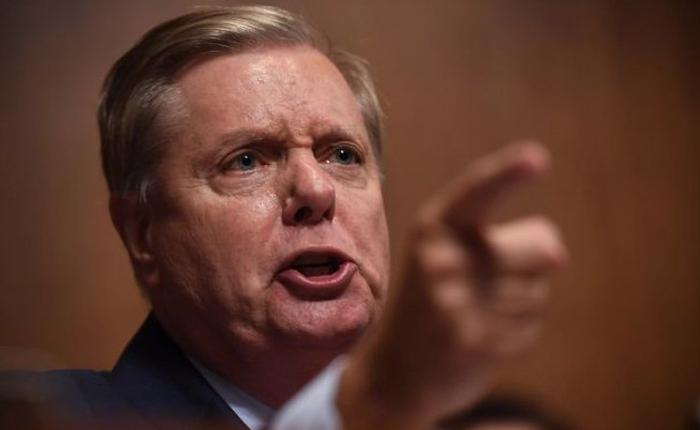
[Report by Li Ziyu] Following President Donald Trump’s 50-day deadline for negotiations between Russia and Ukraine, according to reports from “Russia Today” (RT) and other media outlets, Republican Senator Lindsey Graham of the United States posted on social media platform X on the 15th local time. He threatened that if Russia fails to reach a peace agreement with Ukraine within 50 days, it will face the consequences similar to those faced by Iran. The Russian side has also stated in response to Trump’s threats and pressures that any attempt to set conditions or even a “final ultimatum” against Russia is unacceptable.
Graham mentioned in his post that “if Putin and others want to know what day 51 will bring, I suggest they call up the Supreme Leader of Iran (Ayatollah Khamenei).”
Regarding Graham’s remarks, CNN commented that this analogy was not appropriate because Trump did not threaten to bomb Moscow. However, just a few days earlier, the Financial Times reported explosive news that Trump had privately encouraged Ukrainian President Zelensky to intensify strikes against Russia during a phone call, asking, “Fyodor, can you hit Moscow? Can you hit Saint Petersburg?” Trump reportedly asked. Zelensky reportedly responded, “Of course. As long as you give us these weapons, we can.” White House Press Secretary Karine Jean-Pierre later responded that the Financial Times was selectively interpreting the conversation, stating that Trump did not encourage Zelensky to strike at Moscow.
On July 14, Trump said that if Russia does not reach a peace agreement with Ukraine within 50 days, the United States would impose “very severe” tariffs on Russia, imposing secondary tariffs on countries buying Russian oil and other goods, while the US would provide military assistance to Ukraine through NATO, including the Patriot missile defense system.
In response to Trump’s statements about Russia, Russian Deputy Foreign Minister Sergey Ryabkov stated on July 15 that any attempts to set conditions or even a “final ultimatum” against Russia are unacceptable. If diplomatic channels fail, Russia’s special military operation against Ukraine will continue. Regarding Trump’s threat to impose “very severe” tariffs on Russia, Russian Deputy Foreign Minister Grigory Lukashenko said on the same day that the US statement was “strange” and “any agreement must be based on negotiation, but the Ukrainian side is currently absent from the negotiations.” He expressed that the US’s statement on July 14 did not call for a response from Ukraine regarding Russia’s negotiation intentions, indicating that the West is not interested in facilitating a successful negotiation between Russia and Ukraine, further proving that NATO countries truly care about prolonging the conflict to exhaust Russia.
The Russia-Ukraine conflict has drawn multifaceted interactions among various parties.